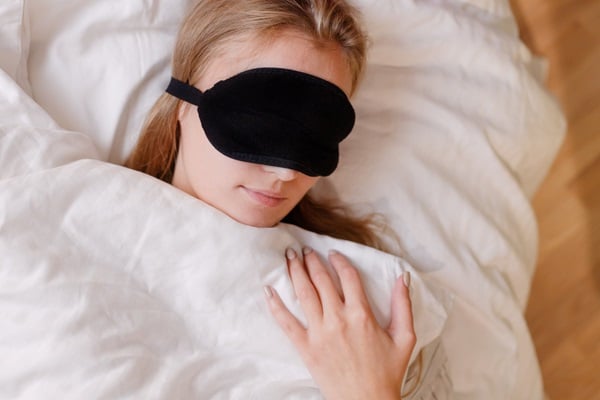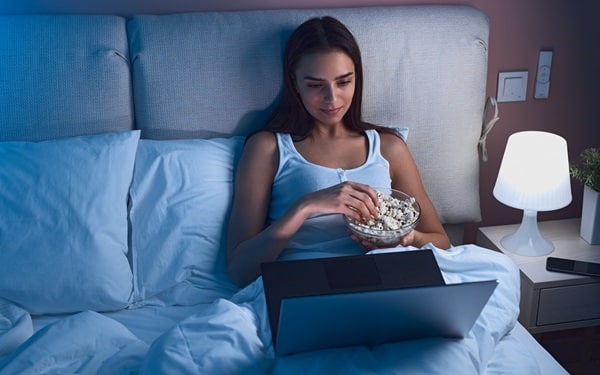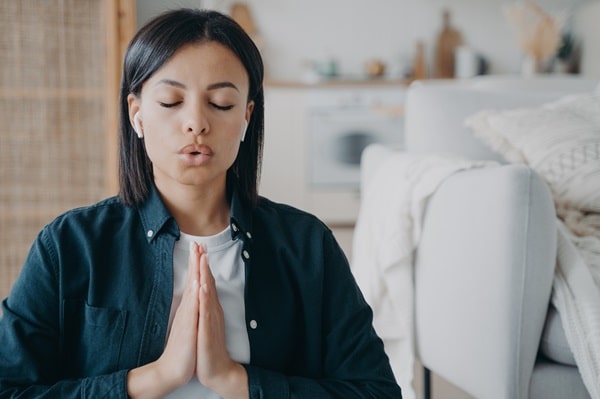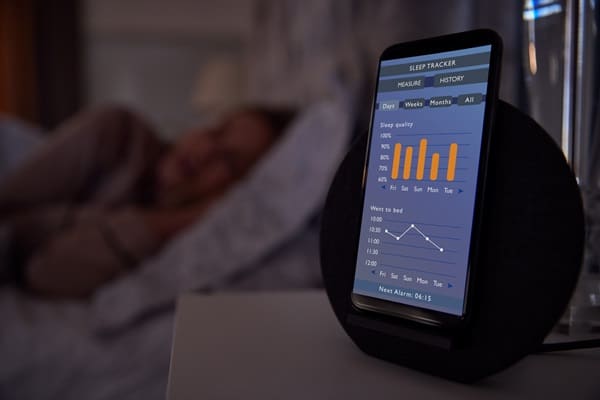Sleep, an essential component of daily life, profoundly impacts overall health and well-being. Yet, many grapple with achieving restful slumber, often due to lifestyle choices, environmental factors, or stress. This article delves into practical and effective techniques to help you sleep better at night. From understanding sleep cycles to the influence of diet, each section offers insights and actionable tips. Whether struggling with insomnia or seeking to improve sleep quality, these techniques are designed to guide you toward a night of more restful and rejuvenating sleep.
Contents
Understanding Your Sleep Cycle

Sleep is not just a period of rest but a complex process involving various stages, each vital for mental and physical restoration. The sleep cycle comprises REM (Rapid Eye Movement) and non-REM stages, cycling through these phases multiple times each night. Understanding these stages is crucial, as it helps in aligning sleep patterns with the body’s natural circadian rhythms, leading to more restful nights. Disruptions in these cycles often result in feeling unrefreshed, even after a full night’s sleep.
Recognizing personal sleep patterns can be transformative. It involves observing sleep habits and noting how various factors like stress, diet, and environment affect sleep quality. Tools like sleep trackers or journals can be instrumental in this process. By identifying patterns, one can make informed adjustments to their lifestyle, enhancing the alignment with natural sleep cycles. This alignment is key to waking up feeling rejuvenated and ready for the day ahead.
Creating A Restful Environment

The environment in which one sleeps plays a pivotal role in the quality of rest obtained. A bedroom that promotes relaxation is essential for good sleep hygiene. This means ensuring the room is quiet, dark, and cool. Noise disturbances, excessive light, and uncomfortable temperatures can significantly disrupt sleep. Investing in blackout curtains, earplugs, or a white noise machine can be beneficial in creating an ideal sleeping environment.
Comfortable bedding also contributes significantly to sleep quality. The right mattress and pillows, suited to individual preferences and sleeping positions, can make a considerable difference. Additionally, the presence of electronic devices in the bedroom can be detrimental to sleep quality. The blue light emitted by screens interferes with the production of melatonin, the hormone responsible for regulating sleep. Therefore, minimizing screen time before bed and keeping devices out of the bedroom can lead to more restful nights.
Diet And Sleep

Diet plays a more significant role in sleep quality than many realize. Certain foods and drinks can disrupt sleep, while others can promote relaxation and restfulness. For instance, heavy or rich foods, fatty or fried meals, caffeinated beverages, and alcohol close to bedtime can impede the body’s ability to fall asleep. Conversely, foods containing tryptophan, magnesium, and certain vitamins can aid in improving sleep quality.
The timing of meals is also crucial. Eating too close to bedtime can lead to discomfort and indigestion, which can keep one awake. A light snack, however, might be beneficial for those who find themselves waking up hungry in the night. Herbal teas, such as chamomile or lavender, are known for their relaxing properties and can be a soothing part of a pre-sleep routine. Incorporating these dietary considerations can significantly impact the ease of falling and staying asleep.
The Role Of Physical Activity

Engaging in regular physical activity is a well-known promoter of better sleep. Exercise helps to regulate the body’s internal clock, reduce stress, and improve mood, all of which contribute to better sleep quality. However, the timing of exercise can be as important as the activity itself. Vigorous exercise right before bed can be stimulating, making it harder to fall asleep. Therefore, it’s recommended to complete intense workouts earlier in the day.
For those who prefer evening exercise, gentle, relaxing activities can be beneficial. Yoga, stretching, or a leisurely walk can help the body wind down and prepare for sleep. These activities promote physical tiredness, which is necessary for sleep, and help manage stress and anxiety, further enhancing sleep quality. Integrating physical activity into daily routines, therefore, can be a significant step towards achieving more restful nights.
Mindfulness And Relaxation Techniques

Incorporating mindfulness and relaxation techniques into the evening routine can significantly enhance sleep quality. Meditation, for example, has been shown to reduce stress, calm the mind, and prepare the body for sleep. By focusing on the present moment and practicing deep, rhythmic breathing, meditation can help in quieting the mind’s chatter which often keeps people awake. This practice doesn’t require a lot of time; even a few minutes can be beneficial.
Another effective technique is guided imagery or progressive muscle relaxation. These methods involve mentally visualizing a peaceful scene or systematically tensing and relaxing different muscle groups. This process not only diverts the mind from daily stresses but also helps in releasing physical tension. Practicing these techniques regularly before bedtime can create a powerful signal to the body and mind that it’s time to wind down and prepare for sleep.
Establishing A Pre-Sleep Routine

A consistent pre-sleep routine is crucial in signaling to the body that it’s time to wind down and prepare for rest. This routine can include various activities, such as reading, taking a warm bath, or listening to calming music. Engaging in these relaxing activities helps in transitioning from the day’s stress to a state of relaxation, making it easier to fall asleep. The key is consistency; performing the same activities in the same order every night can reinforce the body’s sleep-wake cycle.
Digital detox is an integral part of this routine. The blue light emitted from screens can interfere with the production of melatonin, the hormone that regulates sleep. Therefore, it’s beneficial to turn off electronic devices at least an hour before bedtime. Replacing screen time with calming activities can significantly improve the quality of sleep, helping in waking up feeling more refreshed and alert.
Managing Stress And Anxiety

Stress and anxiety are among the leading causes of sleep disturbances. When the mind is preoccupied with worries and stress, it becomes difficult to relax and fall asleep. Techniques such as deep breathing exercises, yoga, or mindfulness can be effective in managing these feelings. These practices not only help in calming the mind but also in reducing physical symptoms of stress, such as muscle tension or elevated heart rate.
Another useful method is journaling. Writing down thoughts and worries before bed can help in clearing the mind and putting problems into perspective. This practice can be therapeutic, as it allows for the release of pent-up emotions and stress, paving the way for a more peaceful sleep. Additionally, reading a book or engaging in other relaxing activities can also divert the mind from anxious thoughts, aiding in falling asleep more easily.
Leveraging Technology For Better Sleep

While technology can often be a hindrance to good sleep, when used correctly, it can also be a powerful tool. There are numerous apps and devices designed to improve sleep quality. These include sleep trackers, which monitor sleep patterns and provide insights into sleep quality, and apps that offer guided meditations or relaxing soundscapes. Understanding personal sleep data can be instrumental in making lifestyle changes for better sleep.
Light therapy is another technological solution that can be beneficial, especially for those suffering from sleep disorders like insomnia or seasonal affective disorder (SAD). Light therapy involves exposure to a light source that mimics natural sunlight, helping to regulate the body’s circadian rhythm. Additionally, smart home devices can be programmed to create an optimal sleep environment, such as adjusting room temperature or dimming lights automatically. Embracing these technological aids can lead to significant improvements in sleep quality.
Unlock The Secrets To Serene Slumber
Enhancing sleep quality is a multifaceted approach, involving adjustments in daily routines, environment, diet, and mindset. By adopting these techniques, you can pave the way for more restful nights and energized days. Remember, small changes can make a significant difference. Start tonight by choosing one or two strategies from this guide and gradually incorporate more over time. Your journey to better sleep and improved well-being begins with a single step. Embrace these changes and experience the transformative power of quality sleep.


